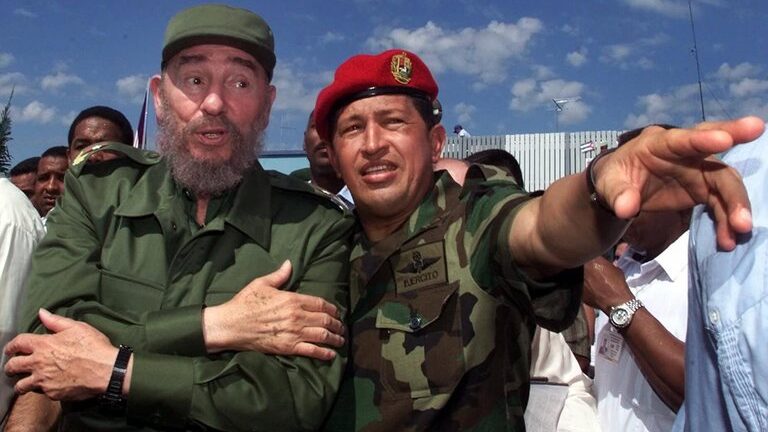A mole in the Chavista regime reveals how Cuba infiltrated the government of Venezuela to consolidate a police state in exchange for oil
It was an economic subsidy, but above all a transfer of sovereignty: That is how “The Consensual Invasion” describes the relationship between Venezuela and Cuba since the time of Hugo Chavez. “It was a unique phenomenon, one of the most peculiar in the history of Latin America and geopolitics throughout the word,” said Diego G. Maldonado — a pseudonym used for safety in a country where freedom of expression is persecuted. “It’s the voluntary submission of a rich nation with an area of more than 900,000 square kilometers and 30 million citizens to one that is eight times smaller with three times fewer citizens.”
The book offers an overview of how Cuba infiltrated the Venezuelan government without resistance or conditions and in many cases was welcomed. “Their men are in place all over the country. In the presidential palace, always at the side of the leader; in the ministries, institutes, and state-run companies,” said the author. “They share in the management of the ports, they have their own aircraft hanger at the presidential ramp at the Simon Bolivar International airport, and they have infiltrated the army and naval bases, all thanks to a secret military convention signed in 2008. Furthermore, they’re deployed all over the national territory leading the main social programs.”
In just his first 10 years in power, before seeking treatment for his illness in Havana, Chavez made 24 official visit to the island and repeatedly expressed his fascination for Fidel Castro, becoming a member of the family in 2009 when he said: “Fidel did me the honor — thank you, my Comandante — of converting me into his son, and that’s how I feel.”
Beyond the emotional aspect, “The Consensual Invasion” highlights how Chavez also viewed his revolutionary patriarch as a master strategist and teacher: “Thanks to Castro — who he likes to mirror — the Venezuelan president learned invaluable lessons on how to neutralize enemies, perpetuate himself in power, and maintain social control.”
Fuente: Babalu
DemosInsight © Copyright 2022. All Rights Reserved Developed by Fenix Web Pro

